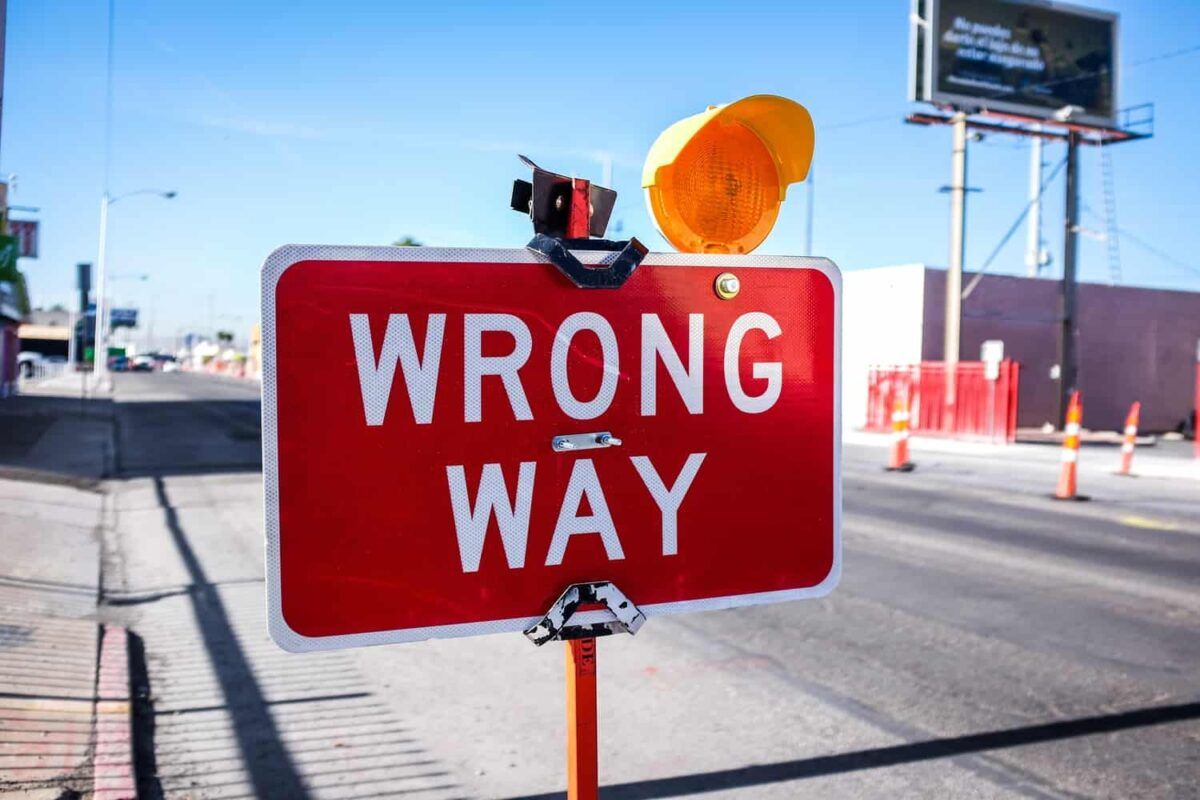Sastang Dandavat at your lotus feet Swamiji. Hope you are taking care of your physical body. I am just wondering, how the Ashram would be looking like after this rains. Greenery all over. Giri Ganga flowing in its full glory. The mystic misty mornings (oh my! I am getting so emotional and poetic!) I am longing to have some glimpse of the Ashram and its surroundings pics. If anyone can share, I will really be grateful.
About today’s topic- I just want to share my views in the wake of something going terribly wrong and deviated more than imagined from a chalked out plan. It can always happen as fact is stranger than fiction. If any such situation has occurred in your life, then please read on.
Perhaps your biggest client left you / put some adverse remarks right before your performance appraisal. May be you could not attend that all important exam / interview due to that delayed train or may be after a couple of days after your electronic appliance came out of warrantee period, it broke down! Sounds very familiar?
In life, things will go wrong and there is usually nothing you can do to stop it, but what you can do is control your actions after.
Unfortunately, most of us react the wrong way when things go wrong. On contrary, we need to respond! Below is a NOT TO DO list:
Blame Others
It is common to blame others for our misfortune (by the way what is misfortune?). When I met that accident last year and burnt a portion of my skin near the right elbow, (due to contact with the silencer pipe of another vehicle) my first thought was this was not my fault as the front bike slammed the brakes all of a sudden and I had to follow the suit. Other reason was the road was wet and slippery as it was raining / the tyres of my bike was worn out etc.
This desire to blame others comes from a feeling of injustice when things do not go according to our plan. “I don’t deserve so and so, then why the heck is this happening to me. For no fault of mine, why am I being punished. Someone else must be held responsible for the mishaps.”
This is a very nasty way of thinking as blaming others is not going to solve the problem. It will actually make things even worse because when we see ourselves as victims, we tend to feel entitled. We start self sympathizing and self pitying. as we do not hold ourselves responsible to fix the problem, we expect someone else should be fixing the issue. We become ferocious on anyone not making us their first priority or not sympathizing with our issue. This leads to a situation where others who genuinely want to help us, feel frightened and we land in even worse situation.
What is the alternative action we need to take?
Simple! Take responsibility. Believe me, it will reduce half of the problem!
Things went wrong because of something we did. Had I been in control of my bike, I could have stopped in time to avoid the accident. Who was responsible for not changing the worn out tyres? Yes it was my negligence! You were late for your meeting because you didn’t give yourself enough time to account for train delays. Once you take responsibility, you stop acting like a victim and waiting for others to help you. You decide to rely on yourself (atmanirbhar) to make the situation better which in turn will make it better as you continue to put your effort in the right direction. You become grateful to anyone who helps you which makes them want to help you even more (a regenerative feedback loop).
Regret
When things go wrong, it’s very natural to regret our decisions that led up to the situation. As I was nursing my injured elbow, I realized that
“I shouldn’t have have driven so fast on such a rainy day. Why did I not take care to start for office a bit early?”
I started to blame myself for my poor decision. It’s the same when you have a fall out with your partner. You might regret not recognizing the signs that your relationship with them was deteriorating.
We regret because we judge our actions with hindsight bias – seeing events that already occurred as being more predictable than they were before they took place. Hindsight is really a very dangerous phenomena which Prahalad Rajkumar has nicely written in on of his articles on OS.me. (Please have a read if you have not). We spend all our time in the land of “if only I had…” and thinking of what we could’ve, should’ve and would’ve done differently. This usually makes us feel even more frustrated because the “right” choice always seems so obvious after the fact. I am not advocating that we should not reflect on these points. But there is a threshold. We need to learn from the incident and use as a lesson rather than go on a “REGRET” mode.
The possible alternate way out:
Focus on the present moment.
It is a waste of time to think about changing the past because there is no way for you to do so (unless you are a Time traveler or have a Time Machine at your disposal!). What matters the most is: what you can do now. Regret can be defined as unhappiness with your past choice. You regret because you’ve lost sight of one important fact:
“You made the best decision you can make at the time you made it.” Of course, if you knew the future, you could make a better decision but you don’t and you never will (unless you have the Scanning Vision of Swamiji).
Don’t waste your time on regrets. Acknowledge that, at the time, it was the best decision you could have made despite the outcome. Now focus all your energy on what you will do next to make the situation better and to prevent a similar situation in the future. Learn from your mistakes but don’t dwell on it.
Be Depressed
One of the most common reactions to misfortune is to feel down as we are all humans. This happens because we worry about the future. When the doctor told me that my left knee needs to be operated upon, I was worried.
What if I won’t be able to walk properly for the rest of my life?
How will I be able to sustain my family?
Why does this always happen to me?
As per Robert Chen, this is called the “dark cloud syndrome” because we begin to take our misfortune personally. We feel that there is a dark cloud following us around and that bad things “always happen to us”. We just can’t seem to catch a break and it leads us to stop trying to make the situation better. We resign to our cursed status and imagine only a gloomy road ahead. Mind you, if you do not do anything, you are not going anywhere.
According to the American Scientist, Edward Tryon,
“Thoughts lead on to purpose, purpose leads on to actions, actions form habits, habits decide character, and character fixes our destiny”
So if you have self-defeating thoughts, your purpose will be to defeat yourself, which leads to actions that will do just that, which form habits where you are constantly defeating yourself, until you build up a self-defeating character, which results in you being repeatedly defeated in life.
A really disastrous outlook.
The alternate route of contemplation:
Our realities are based on our perceptions and our perceptions are based on what we focus on. When things go wrong, we tend to focus on all the other times where things have gone wrong and we start to generalize that things always go wrong for us. A better approach when things go wrong is to say to yourself,
“That’s interesting because things usually work out for me.”
Then spend some time thinking about how lucky you are (if you are able to read the article, you have a smart device, you are able to access to the internet that means you already have all your ends met, you don’t need to worry for getting food, clean drinking water etc.., got it?).
We should avoid worrying and being upset if we contemplate about how lucky we are. We should try focusing on what the next step should be and creating contingency plans (back up plan). As per Murphy’s Law ” If anything can go wrong, it will!” So it’s possible for things to go wrong without feeling frustrated, angry, depressed or worried. Handling this setback in this resourceful way can create a very positive experience for all of us. This, I am able to write from my own experience.
I am grateful to experience firsthand the power of changing my thoughts and its effect on changing my actions and my destiny. Swamiji has the most profound influence in developing this thought process.
Hope, I am able to inspire you all with this post. All the best for your problems, I mean resolving your problems!
Jai Shri Hari…









Comments & Discussion
2 COMMENTS
Please login to read members' comments and participate in the discussion.